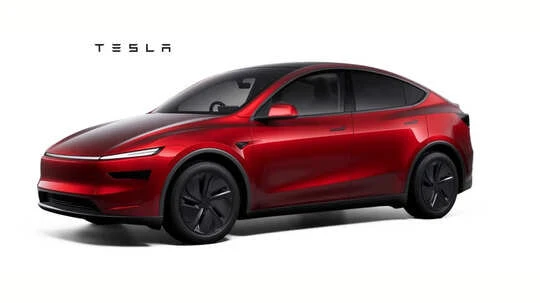Tesla has signed a $4.3 billion deal with South Korea’s LG Energy Solution (LGES) to supply lithium iron phosphate (LFP) batteries for its energy storage systems, according to Reters.
The move marks a major step by Tesla to reduce its reliance on Chinese battery imports, especially as U.S. tariffs on such imports continue to rise.
The LFP batteries will be manufactured at LGES’s facility in Michigan, the source said, requesting anonymity due to the private nature of the agreement. LGES confirmed on Wednesday that it had signed a $4.3 billion contract to supply LFP batteries over a three-year period but did not disclose the customer’s identity.
“In accordance with our agreement, we are unable to disclose the customer’s identity due to confidentiality obligations,” LGES told Reuters. Tesla did not immediately respond to Reuters’ request for comment.
The agreement is a timely one for Tesla, as it faces increasing pressure from U.S. tariffs and looks to build a more geographically diverse battery supply chain. In April, Tesla Chief Financial Officer Vaibhav Taneja had said, “We will also be working on securing additional supply chain from non-China-based suppliers, but it will take time.”
He also stated that U.S. tariffs had an “outsized” impact on Tesla’s energy division, which is growing faster than its electric vehicle (EV) business. The energy business, which includes products like Tesla’s Powerwall and Megapack storage systems, makes up over 10% of Tesla’s total revenue.
“Energy is growing really well despite headwinds from tariffs and various supply chain challenges,” Tesla CEO Elon Musk said during an earnings call last week. “I think not that many people appreciate just how gigantic the scale of battery demand is.”
LGES began LFP battery production in Michigan in May. It is currently the only major company producing this battery chemistry in the U.S., which has largely been dominated by Chinese firms until now.
“Other players, including South Korean firms like Samsung SDI and SK On, have yet to enter the U.S. LFP market, allowing LGES to enjoy a first-mover advantage,” said Cho Hyun-ryul, a senior analyst at Samsung Securities. “While rivals have announced plans, LGES remains the only one actively producing at scale.”
The contract between LGES and Tesla is set to run from August 2027 through July 2030, and it includes options to extend the deal for up to seven more years or increase the battery volume, depending on future discussions between the two companies.
Meanwhile, Tesla also announced a $16.5 billion agreement this week to buy semiconductor chips from Samsung Electronics’ Texas plant, another sign of deepening ties with South Korean suppliers as they expand their presence in the U.S.
According to Reuters, to navigate around the looming 25% tariffs on U.S. imports from South Korea, which are scheduled to take effect on August 1, three South Korean cabinet-level officials recently met with U.S. Commerce Secretary Howard Lutnick in Washington. According to Seoul, the aim was to reach a trade agreement in time to avoid the new duties.
